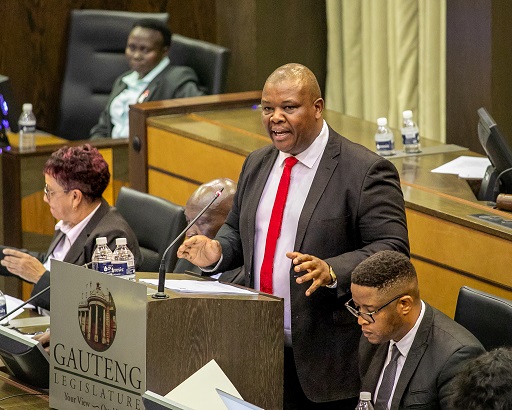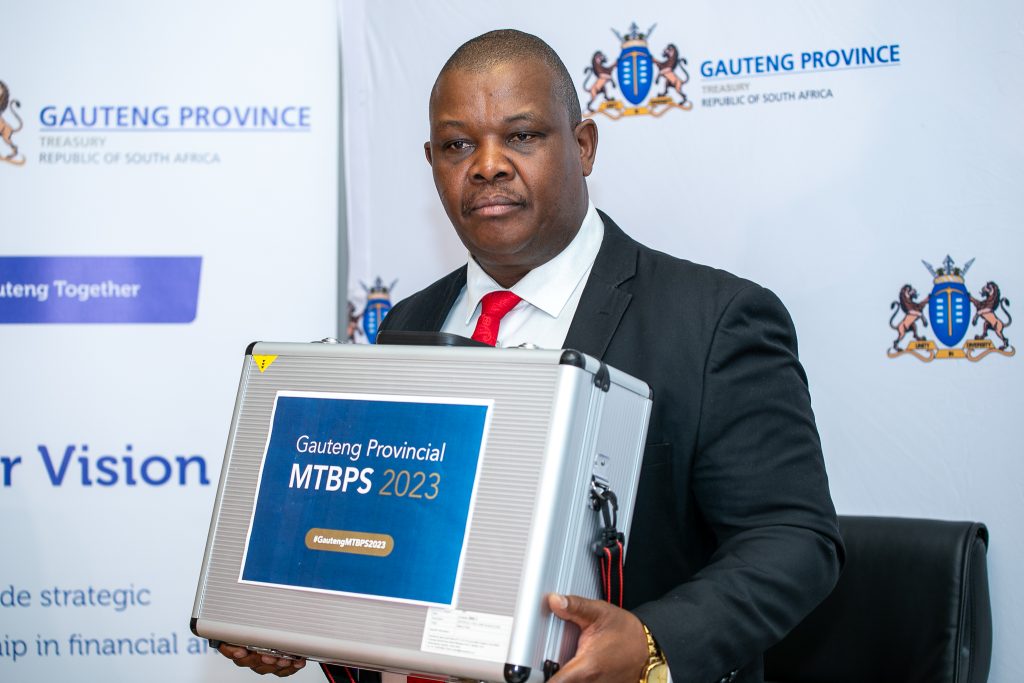
Finance MEC Jacob Mamabolo today increased the budget of the Gauteng Provincial Government by R4.5 billion, mainly to fund energy projects and the expansion of frontline services in townships, informal settlements and hotels (TISH) areas.
“The 2023 Main Budget is today being adjusted from R158.9 billion to R163.5 billion. The Adjustments Budget is seldom about the introduction of new priorities. It is primarily about providing for unforeseen and unavoidable expenditure, as well as the formalisation of commitments that were not pencilled into the Main Appropriation, such as the energy projects,” MEC Mamabolo said.
The MEC said Gauteng is working on a plan to settle the E-Toll debt and will submit a proposal to national government next month.

“We reaffirm our longstanding commitment to pay the debt, including augmenting our own provincial revenue without burdening the equitable share, especially priorities for social services such as education, health, and social welfare. The gantries should be switched off, and be repurposed and repositioned for security, crime prevention and roads-related law enforcement services,” he said.
MEC Mamabolo announced that Gauteng managed to collect R32 billion from its own revenue sources including hospital patient fees and motor vehicle licenses fees since 2019.
He said budget cuts from national means that the province must do more with less. That is why the province is intensifying revenue enhancement efforts and exploring alternative sources to maintain funding of key priorities.
NEW REVENUE ENHANCEMENT INITIATIVES INCLUDE THE FOLLOWING.
• Smart DLTC Expansion entails the expansion of smart DLTCs to 65 licensing sites in the Tshwane, Ekurhuleni, Johannesburg, Sedibeng and West Rand to improve service delivery in TISH areas.
2 • New Casino regulations is about transitioning from a flat tax structure regime of 9 per cent to a proposed flexible sliding scale tax structure ranging from 8 to 15 per cent, applied to Gross Gaming Revenue (GGR) levels.
• Total of 9 New Bingo Licences issued by the Gauteng Gambling Board as part of a strategy to infuse transformation in the industry by introducing new players from previously disadvantaged groups and secondly as a form of revenue enhancement strategy.
• E-Commerce/Cashless Rollout allows liquor traders to view their bills electronically and make payments online through a mobile payment application.
Turning to economic transformation, the MEC said the provincial government continues to leverage procurement to drive the empowerment of township enterprises.
“We also crisscrossed the province over the past four years registering township businesses on the Central Supplier Database (CSD). Through these efforts, we have significantly increased the number of companies registered on the CSD. Then we spent more than R12.7 billion of provincial resources procuring goods and services from these township enterprises,” he said.
“This shows that through the township SMME support, liquidity and cash inflows into Township Enterprises and households, especially among the most vulnerable individuals, such as the youth, women and people living with disabilities, we are eradicating poverty, inequality, and unemployment,” MEC Mamabolo added.
INFO SUPPLIED.

